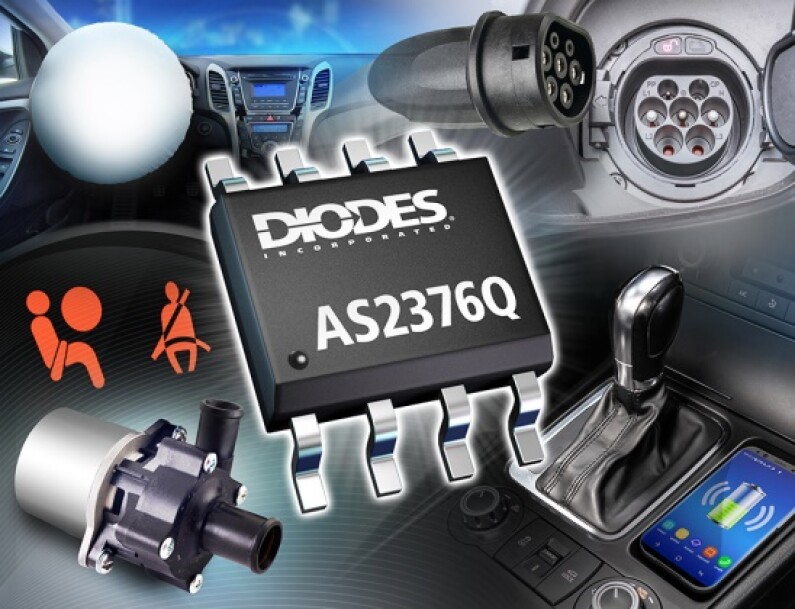Precision Op Amps Handle Automotive Signal Conditioning Demands

By Johnny Lu, Standard Linear and Logic Product Line Manager
It’s become commonplace to think of cars as computers on wheels—with many high-profile industry figures using such terminology. But that can be a misleading comparison, as analog signals are just as important as digital computing in the automotive industry.
Today’s vehicles are full of sensors capturing data on temperature, pressure, and much more. The analog signals generated all require processing and signal conditioning, which have contributed to the increase in the cost of electronics as a share of the total car cost—up from 5% in 1970 to more than 35% today, and forecast to reach 50% by 2030[1].
The demand for precision signal conditioning is only going to rise as more features are added to our cars. For example, advanced driver assistance systems (ADAS) already transform the driving experience, with capabilities such as adaptive cruise control, collision avoidance, and automated emergency braking. The data required for ADAS systems comes from multiple in-car sources, including analog signals that require conditioning.
Similarly, the shift to electric vehicles brings new demands such as inverter controls, motor controls, and battery management systems—which likewise all require analog signal processing. The list of in-car applications requiring signal conditioning is almost endless: airbags, position sensors, occupancy detection systems, etc.
These growing demands mean design engineers need electronic components that deliver high levels of precision and performance, in criteria such as bandwidth, dynamic range, and signal-to-noise ratio. Components must also be robust enough for the car’s varying and potentially harsh environment, have qualification for automotive quality and safety standards, and ensure power efficiency as to reduce demand on a car’s battery and minimize heat problems.
One of the most common and important components in signal conditioning is the operational amplifier, or op amp. Diodes Incorporated has responded to the demands of automotive applications with two new automotive-compliant precision op amps, targeted at different use cases.
Firstly, the rail-to-rail input/output AS2376Q offers high signal-to-noise ratio characteristics. This means the device is optimized for usage in applications such as on-board chargers (OBCs), DC-DC converters, BMS implementations, and airbags.
The AS2376Q has 5.5MHz bandwidth, which handles 50kHz signals without significant loss of AC signal accuracy. Its low-input noise density of 9.5nV/√Hz, low-frequency noise at 0.8µVpp, and rail-rail output deliver enhanced signal-to-noise ratios. With a typical offset voltage of 5μV, the AS2376Q maintains a wide dynamic range down to DC. The rail-to-rail input range enables the device to condition signals for both the ground and supply rail.
Secondly, the rail-to-rail input/output AS2333Q op amp requires tiny quiescent currents of just 12μA on each amplifier channel. This means that the device is ideally suited for functions that must remain live even when the vehicle is inactive, while not draining the car battery when parked for long periods. Its chopper-stabilized rail-to-rail input range enables the AS2333Q to offer extremely low-offset voltages and low-frequency noise across its whole common-mode range.
Both automotive-compliant op amps are qualified to AEC-Q100 grade 1 and provide the reliability needed for in-car usage.
Whether the upmost priority is in signal-to-noise ratio or precision signal conditioning at minimal quiescent current, the AS2376Q and AS2333Q op amps provide a solution that meets today’s requirements in automotive signal conditioning.
[1] https://www.statista.com/statistics/277931/automotive-electronics-cost-as-a-share-of-total-car-cost-worldwide/
The Diodes logo is a registered trademark of Diodes Incorporated in the United States and other countries.
All trademarks are the property of their respective owners.
© 2023 Diodes Incorporated. All Rights Reserved